Current Events :










Washington, May 8
US President Donald Trump on Tuesday pulled out of the landmark nuclear deal with Iran, an Obama-era accord which he has repeatedly criticised.”It is clear to me that we cannot prevent Iran’s nuclear bomb. The Iran deal is defective at its core. Therefore, I am announcing today that the United States would withdraw from the Iran nuclear deal,” Trump said.Moments later he signed a fresh set of sanctions against Iran and warned countries against any cooperation with Iran on its nuclear weapons programme.Ever since his election campaign, Trump has frequently criticised the Obama-era Iran nuclear deal, also known as the Joint Comprehensive Plan of Action or JCPOA.The Iran nuclear deal was reached in Vienna in July 2015 between Iran and the P5 (the five permanent members of the UN Security Council) plus Germany and the European Union.Trump’s decision would have global ramifications, straining Iranian economy and heightening tensions in the Middle East. PTI
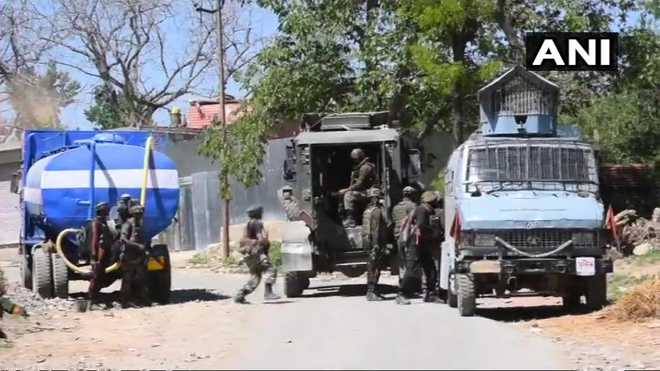
The security forces, including personnel from the Rashtriya Rifles (RR), Central Reserve Police Force (CRPF) and the Special Operations Group (SOG) of the state police cordoned off Drabgam village receiving a tip-off about holed-up militants. ANI
Our Correspondent
Srinagar, April 30
Two Hizbul Mujahideen militants, including Sameer Ahmed Bhat, alias Sameer Tiger, were killed in the Pulwama encounter on Monday, said officials.
Earlier, two Army men, including a major, were injured in the gunfight between militants and security forces in Drubgam village of Pulwama, officials said.
The two militants were trapped in the area, the officials added.
Security forces launched a cordon and search operation in Drabgam area after receiving information about the presence of two to three militants in the area, a police official said.(Read: Sameer Tiger found death waiting in village he called home)As the security forces were closing in, the militants opened indiscriminate fire on them, the official said.
The civilian was killed when security forces were trying to chase away a stone-pelting mob, they said.
Civilians wanted to throng the encounter site so that the militants could run away, an official said.
Around noon, security personnel, who were fighting stone pelting from the civilians, fired at heavily at the house, thereby creating an explosion, officials said.
About an hour later, the first militant, identified as Aaquib Mushtaq, was killed. He was a local resident belonging to Pulwama’s Rajpora area.
One of the injured is a Major-rank officer, who has hit by a bullet in the arm. Both the injured soldiers were evacuated to the Army’s 92 base hospital for treatment, the officials said.The civilian killed in the clashes was identified as Shahid Ahmad Dar, they said, adding that the circumstances in which the 25-year-old youth was killed are being ascertained. With Agencies
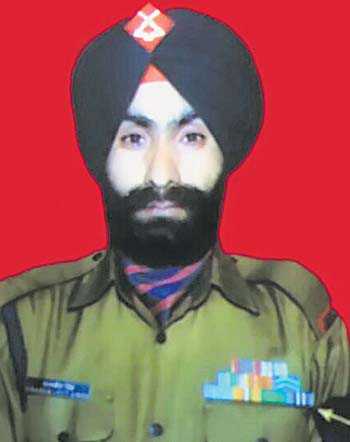
Jammu, April 21
Havildar Charanjeet Singh, 42, grievously injured in the Sunderbani sector on April 17 during ceasefire violation by Pakistan troops, succumbed to his injuries on Friday. He was cremated with full military honours at his native village Kalsian in Nowshera sector on Saturday. Hundreds of people from Kalsian and adjoining villages paid their last respects to the soldier, who is survived by his wife Neelam Kumari. “Havildar Charanjeet Singh sustained bullet injuries, was evacuated and provided intensive medical care in military hospitals. Despite all efforts, the gallant soldier succumbed to his injuries in the early hours of Friday,” a defence spokesperson said. — TNS
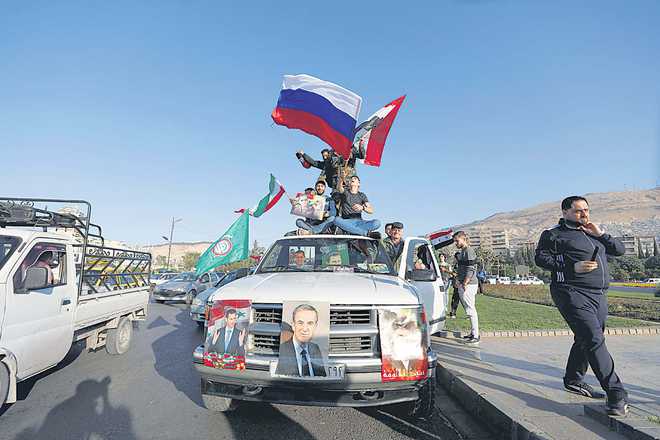
MK Bhadrakumar
THE developments over Syria during the past 10 days have been breathtaking. In the eyes of some observers, the cascading tensions between the two superpowers — the US and Russia — harked back to the 1962 Cuban missile crisis. But that is a stretch. There is no ideological struggle today; Syria is not Cuba; nor is Russia the Soviet Union or the world bipolar. The leitmotif, if at all, lies in geopolitics.Fundamentally, the precipitate situation has a lot to do with the United States’ unipolar predicament. The failure of the wars in Afghanistan and Syria underscored that the US has lost the capacity to impose its will abroad despite being the biggest military power. The Harvard professor who invented the term “soft power”, Joseph Nye, wrote recently that the US has to relearn the “lessons of using power with others as well as over others.” He added, “In other words, the US will have to use its soft power to create networks and institutions that will allow it to cooperate with China, India, Japan, Europe, and others to deal with transnational problems… that no country can solve unilaterally. That will require overcoming the unilateral policies and attitudes associated with the rise of Trump.”However, the problem is more deep-rooted than the rise of Donald Trump. The American elites, with very few exceptions, are in a denial mode regarding the decline of the US’ influence after nearly a century of global hegemony and over the shift in global power away from the West after a history of five centuries of dominance. Trump accentuates this contradiction because although his support base in the 2016 election roots for “America First”, he actually represents Wall Street interests. And American capitalism is fuelled by wars. The highly contrived Russia-collusion hypothesis worked well so far for the “swamp” to nudge Trump incrementally toward the trodden path of the military-industrial complex and Wall Street. Barack Obama also faced a similar predicament — in Libya and Afghanistan; in proclaiming a “pivot” strategy in Asia; in ramping up NATO as the vehicle for the New American Century project; in the deployment of US missile defence system to Central Europe; and, in piloting the regime change in Ukraine in 2014 — which turned the tide of the West’s relations with Russia. Obama’s master plan to resuscitate the Western alliance system and to re-establish the US’ trans-Atlantic leadership was never in doubt.In fact, the Syrian conflict is Barack Obama’s legacy. The new element that Trump has introduced is his virtual handover of the endgame to the generals. First he began saying he wanted American troops in Syria to return home “where they belong” — and end the US’ wasteful Middle Eastern wars that cost $7 trillion so far. But when his generals objected, pleading there is unfinished business still, he’s swung to the other extreme by seizing a rumoured chemical attack in Douma and ordering the Pentagon to plan an attack on the Syrian regime. And Trump then took a de tour to announce that the attack would be deferred. By Thursday, Trump had tweeted: “Never said when an attack on Syria would take place. Could be very soon or not so soon at all!”Was he playing a video game, as the former US Deputy of State Nicholas Burns put it? The US domestic politics indeed becomes a moot point where a wave of support is steadily building up for the Democrats in the November elections to the Congress. In the foreign policy arena too, like in a Salvador Dali painting, all this rather becomes the stuff of a surrealist meditation on the collapse of our notions of a fixed world order. The present crisis has morphed into an inflection point. Trump is all but jettisoning his foreign policy instincts and is also opting to play safe. Clearly, a limited US strike on the Syrian government cannot hope to achieve anything significant. The Syrian troops and their allies have quietly evacuated the major air bases and relocated elsewhere. In effect, the Syrian regime has all but won the seven-year conflict. All major cities and main population centres — Damascus, Aleppo, Latakia, Homs and Hama — are under the regime’s control. These regions spanning the fertile lands along the western coast and the northwest of the country were once dubbed cynically “useful Syria” by the French colonialists, as distinct from the vast inhospitable deserts and infertile regions to the east and northeast where the US and its Kurdish allies (who form around 10 per cent of Syria’s population) are operating.The only plausible explanation for the ecstatic interest in London and Paris for the US-British-French attack on Syrian regime is their collective frustration and anger that the entire regime-change enterprise has collapsed. The capture of East Ghouta, a set of suburbs of Damascus to the east, by government forces a week ago from Salafi jihadi militia has infuriated the Western intelligence. (Douma, where the alleged chemical attack took place last Sunday, is one of three districts of East Ghouta, and was dominated by the Saudi Arabian proxy, Army of Islam.) Then, there is the overarching Western concern that the resurgence of Russian power on the global stage, especially in the Middle East, needs to be countered before it is too late.Without doubt, Trump’s earlier decision to drawdown the US forces in Syria is fundamentally correct. The point is, a narrow exercise of deterrence — the current “one-time shot, as US Defence Secretary James Mattis described the wave of attacks on Saturday — will not alter the balance of power in Syria. It seems improbable that Trump has any interest, either, to commit resources for “nation-building” in Syria. The futility of reversing the history of political failure in Syria under Obama’s watch is at once apparent — except through a large-scale invasion of Syria. Again, it is already apparent that the European Union is badly divided on the US-UK-French operation. Above all, Trump will come under fire for not seeking Congressional approval and acting without mandate from the UN Security Council, leave alone wait for the chemical investigation team to report back from Syria.Conceivably, a fair amount of “mil-to-mil” US-Russia consultations took place through the most recent days regarding “deconfliction” procedures. From all appearance, Moscow was notified in advance about the US strike on Syria. However, the heart of the matter is that Saturday’s strike is hugely symbolic and cannot be shrugged away as a “stand-alone” event. Moscow will suspect that a pre-designed scenario is being implemented and Russia itself is threatened.The writer is a former ambassador
Tribune News Service
Malout, April 13
Senior vice-chairman of Guardians of Governance (GoG) and senior adviser to Chief Minister Lieutenant-General TS Shergill (retd) on Friday held a meeting with officials and some ex-servicemen at the District Administrative Complex (DAC) in Muktsar and said this new initiative of the state government would play an active role in the overall development of the state.He said the aim of the scheme was to ensure that every scheme of the government and all grants issued by the government reach the actual beneficiaries without any delay.He said the Congress government had honoured brave ex-soldiers through this scheme who would implement it with honesty and dedication.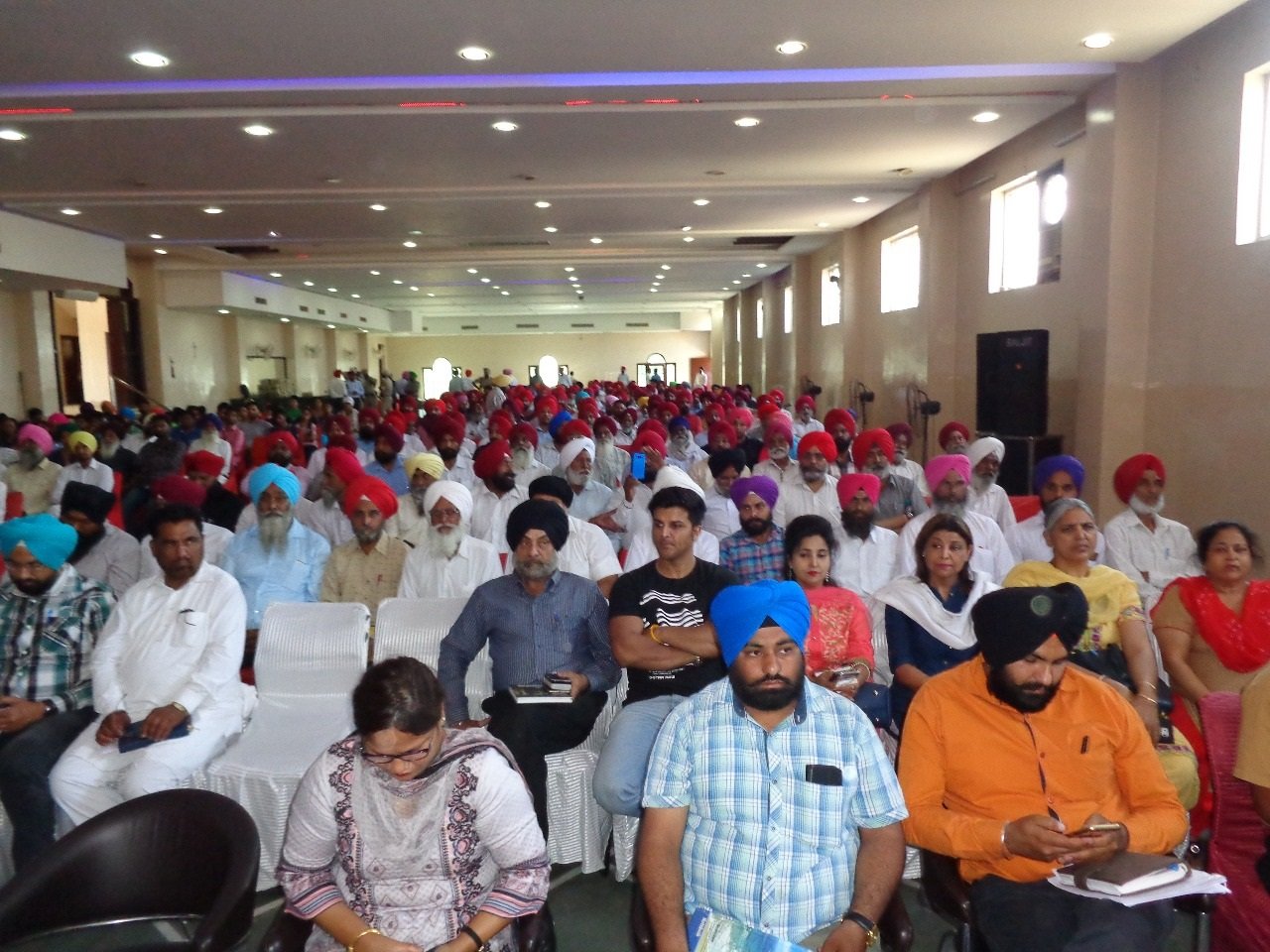
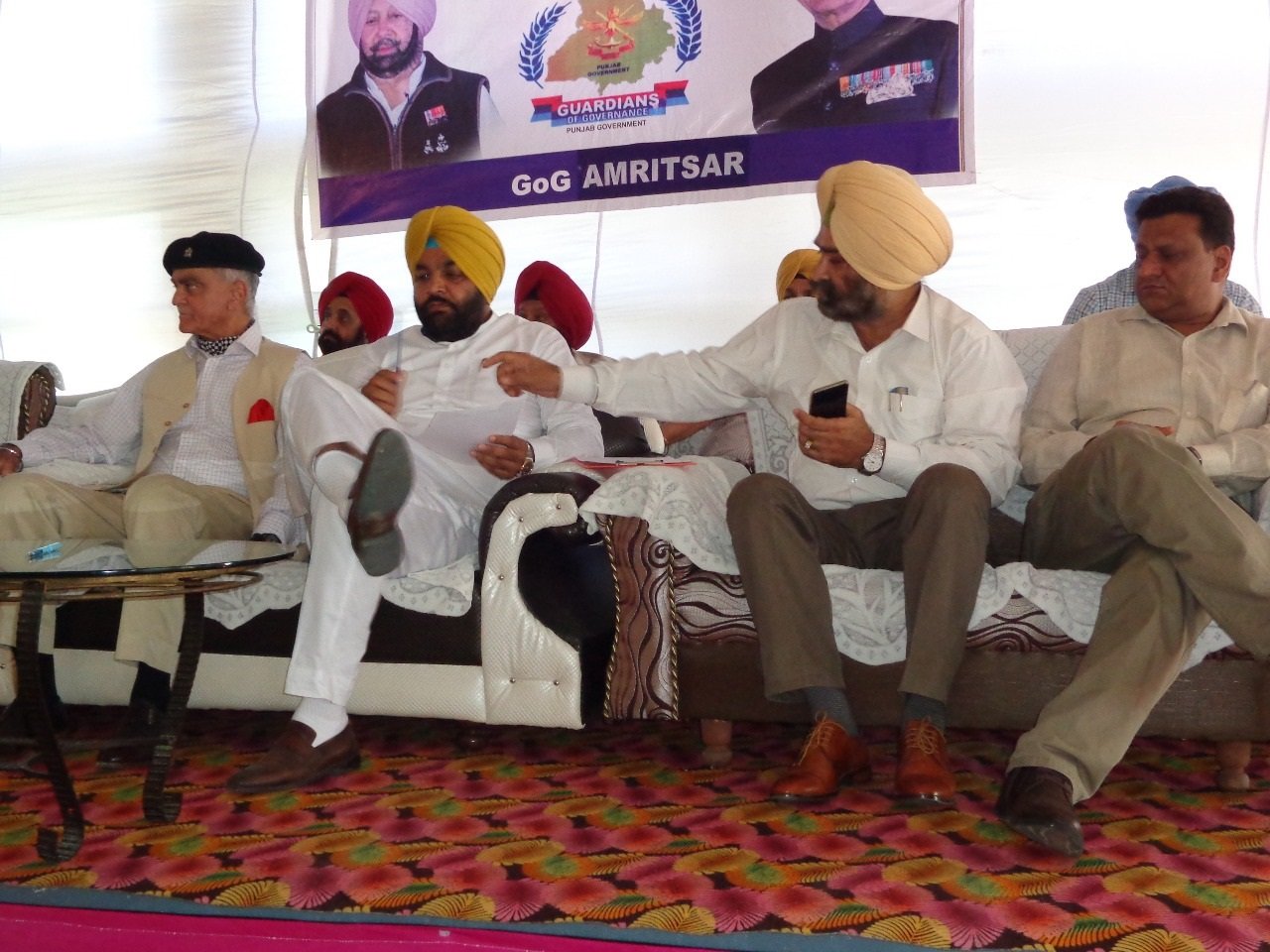
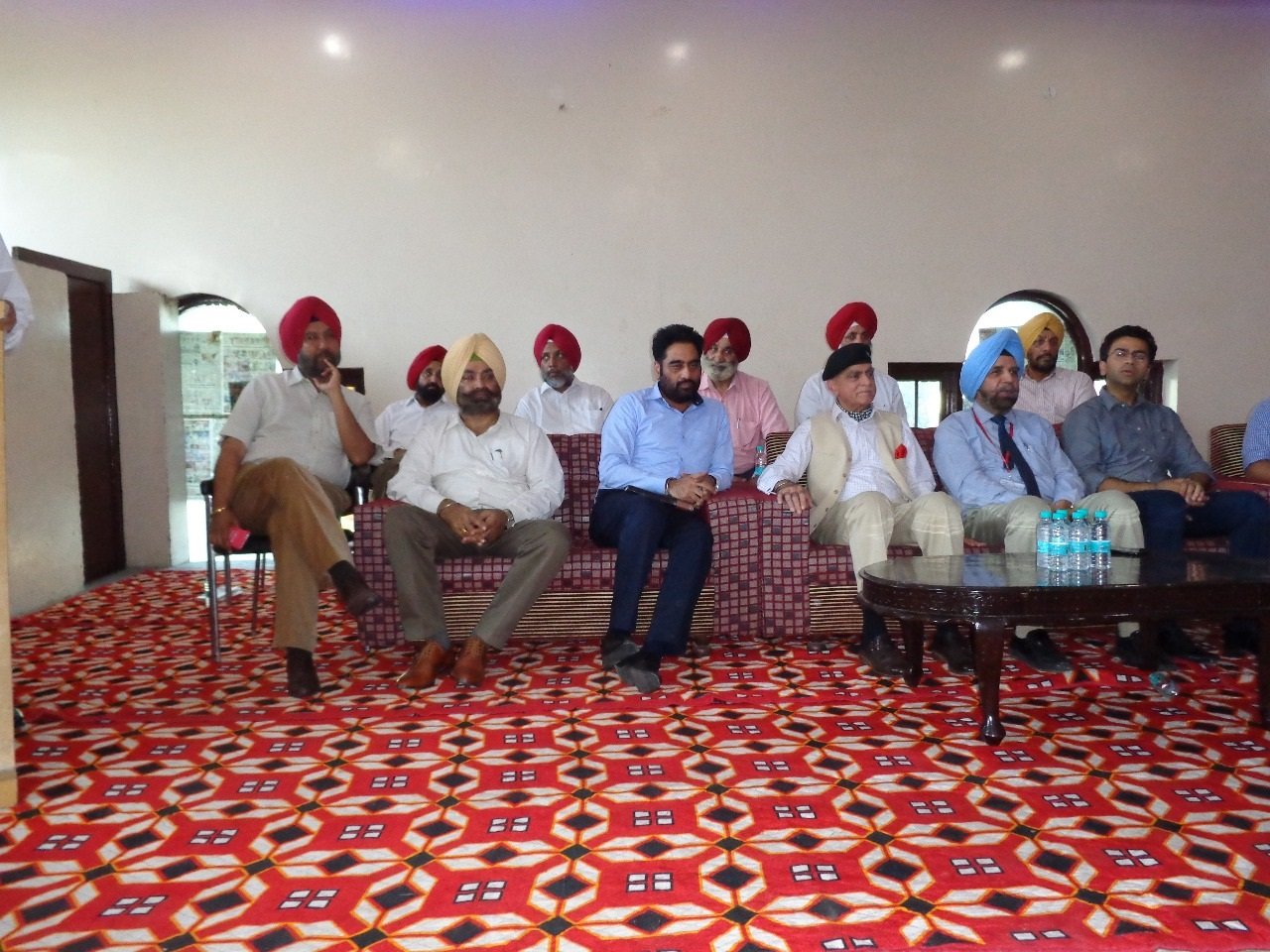
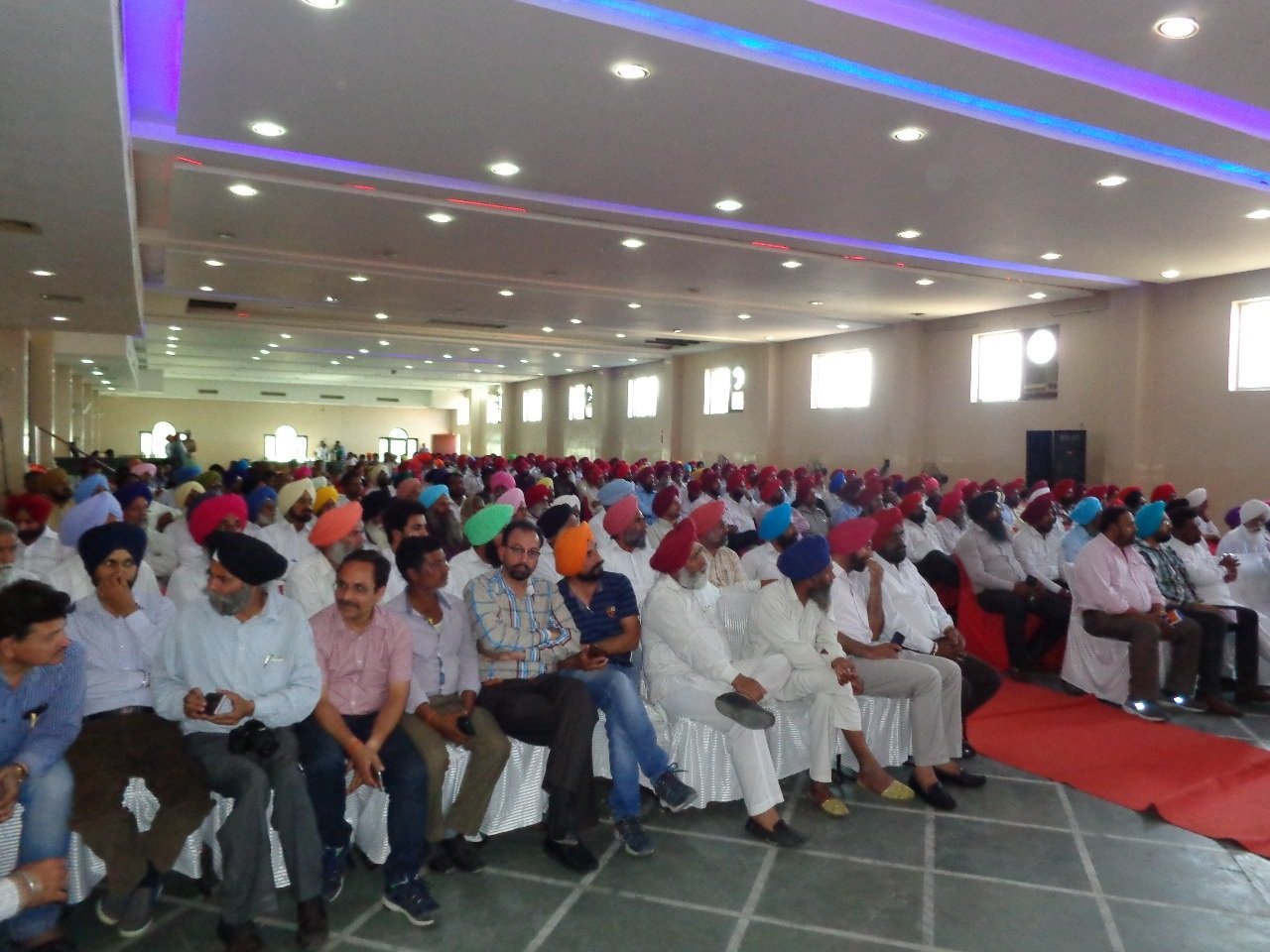
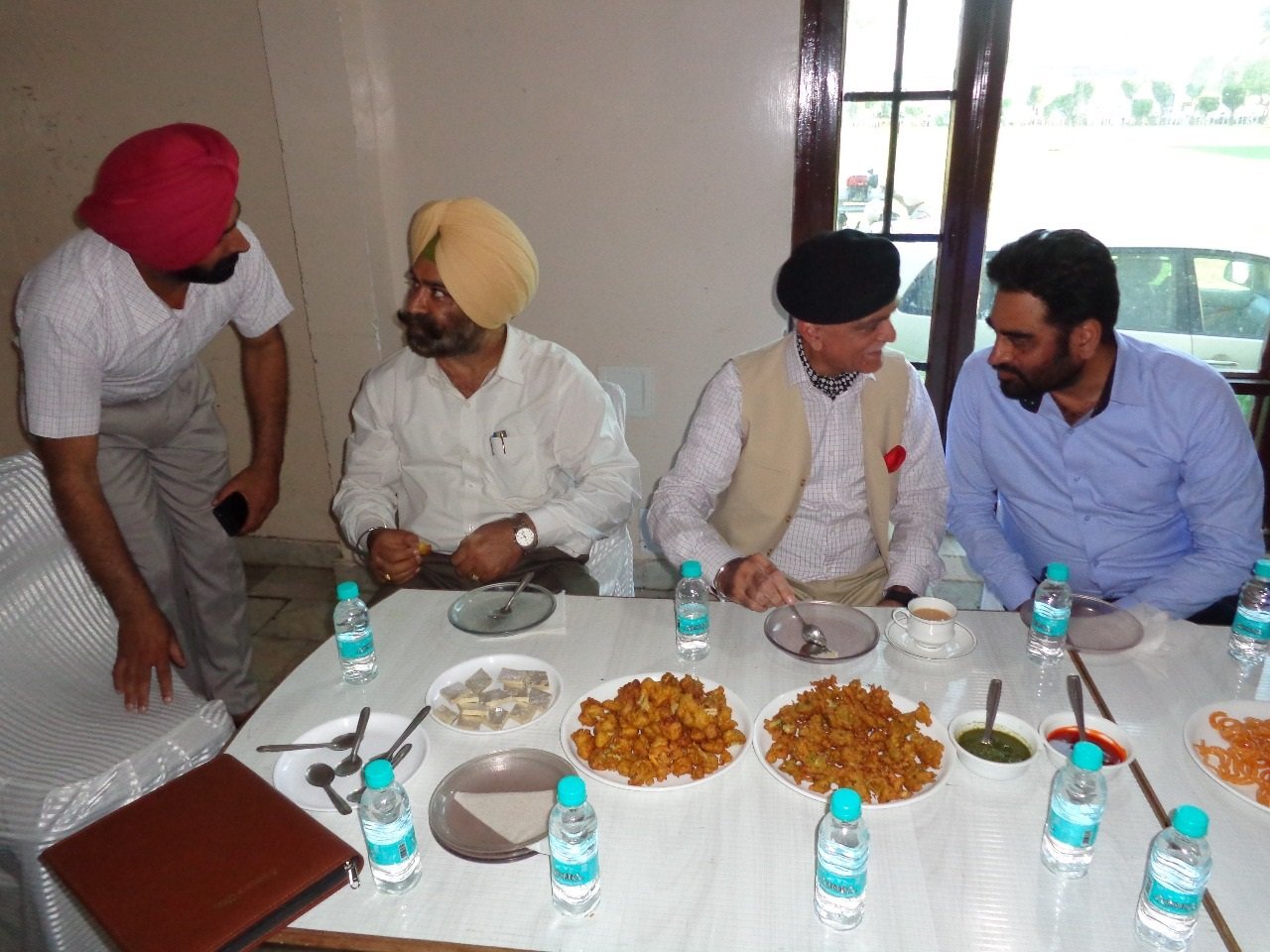
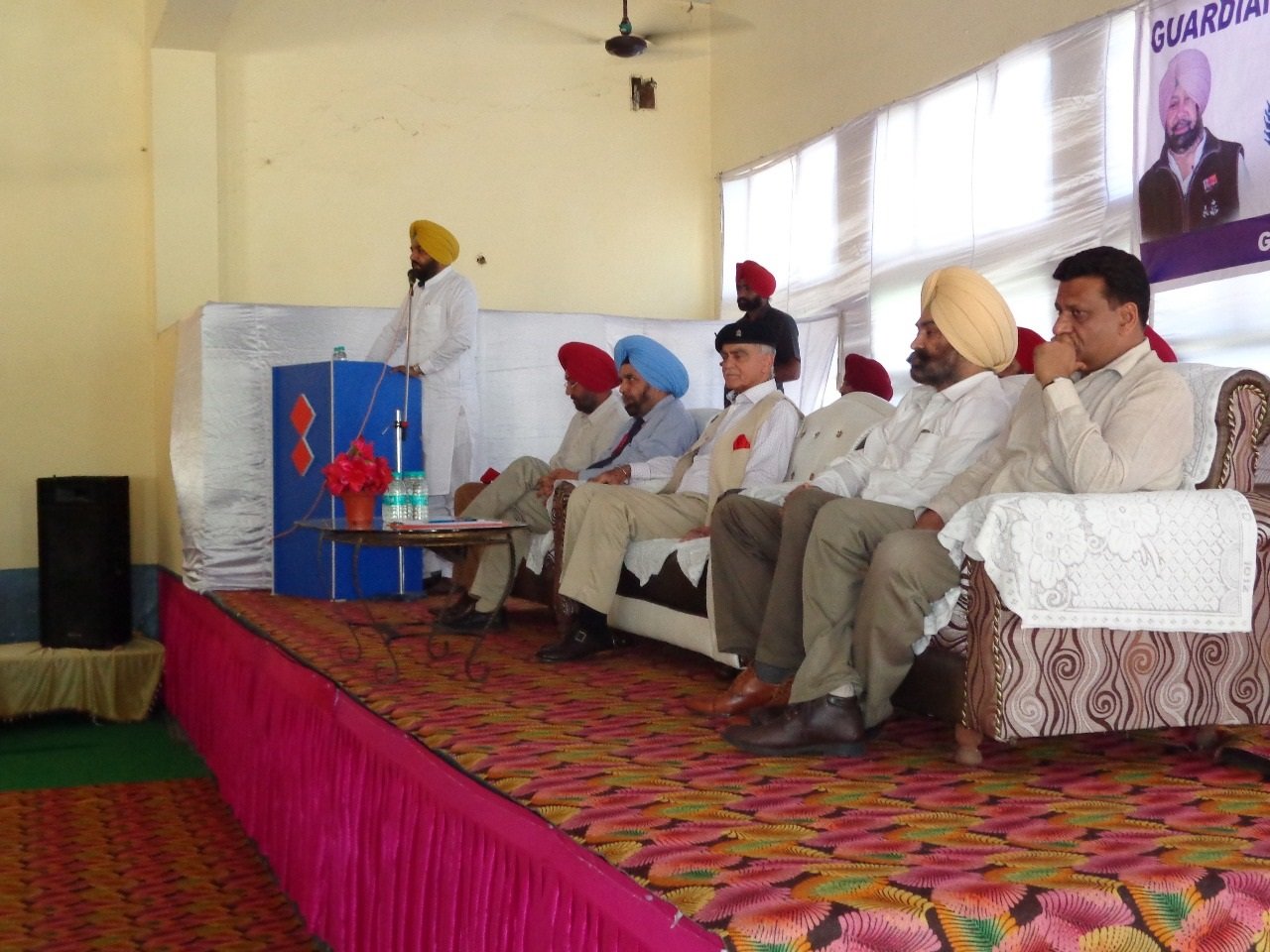
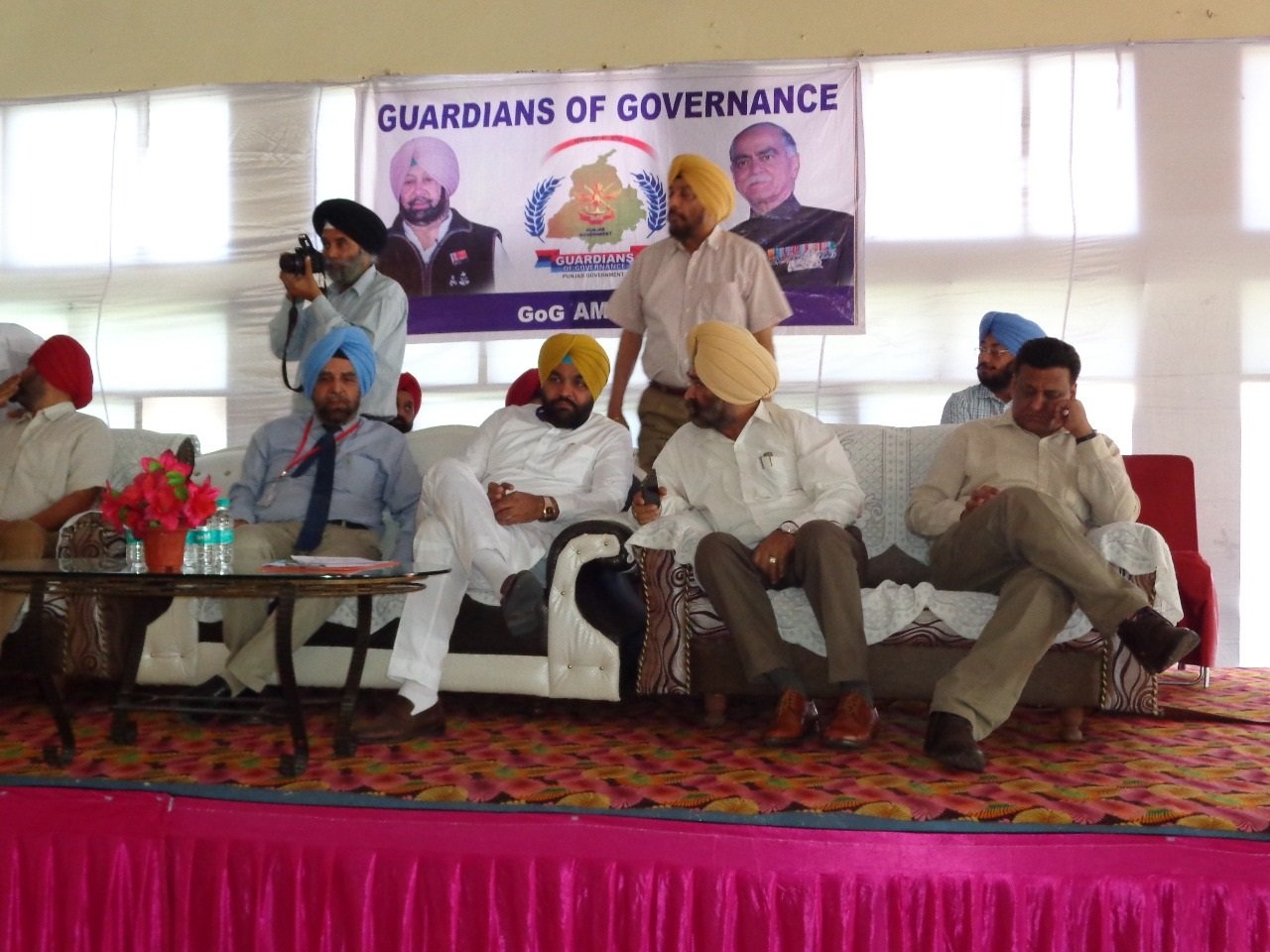
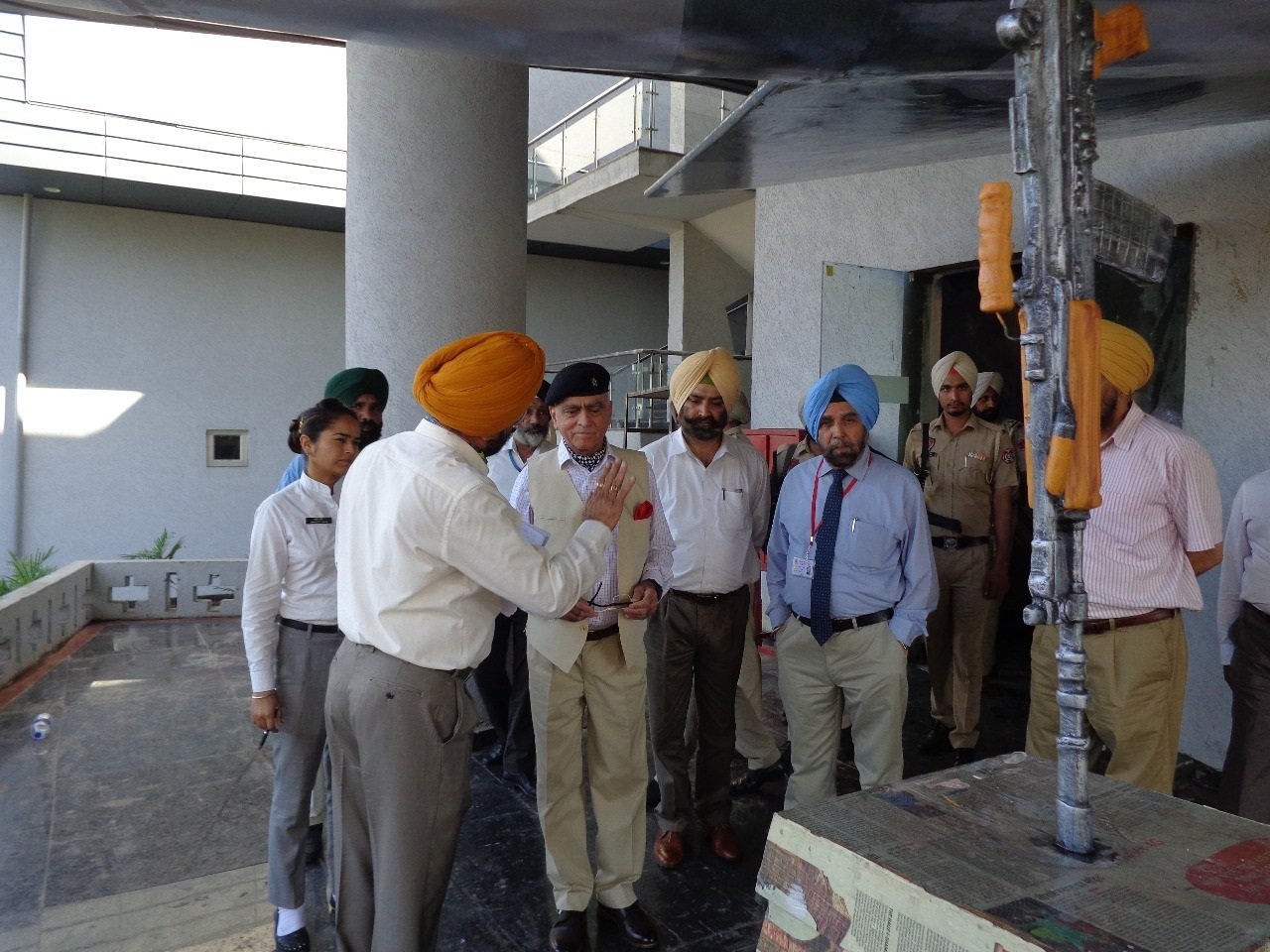
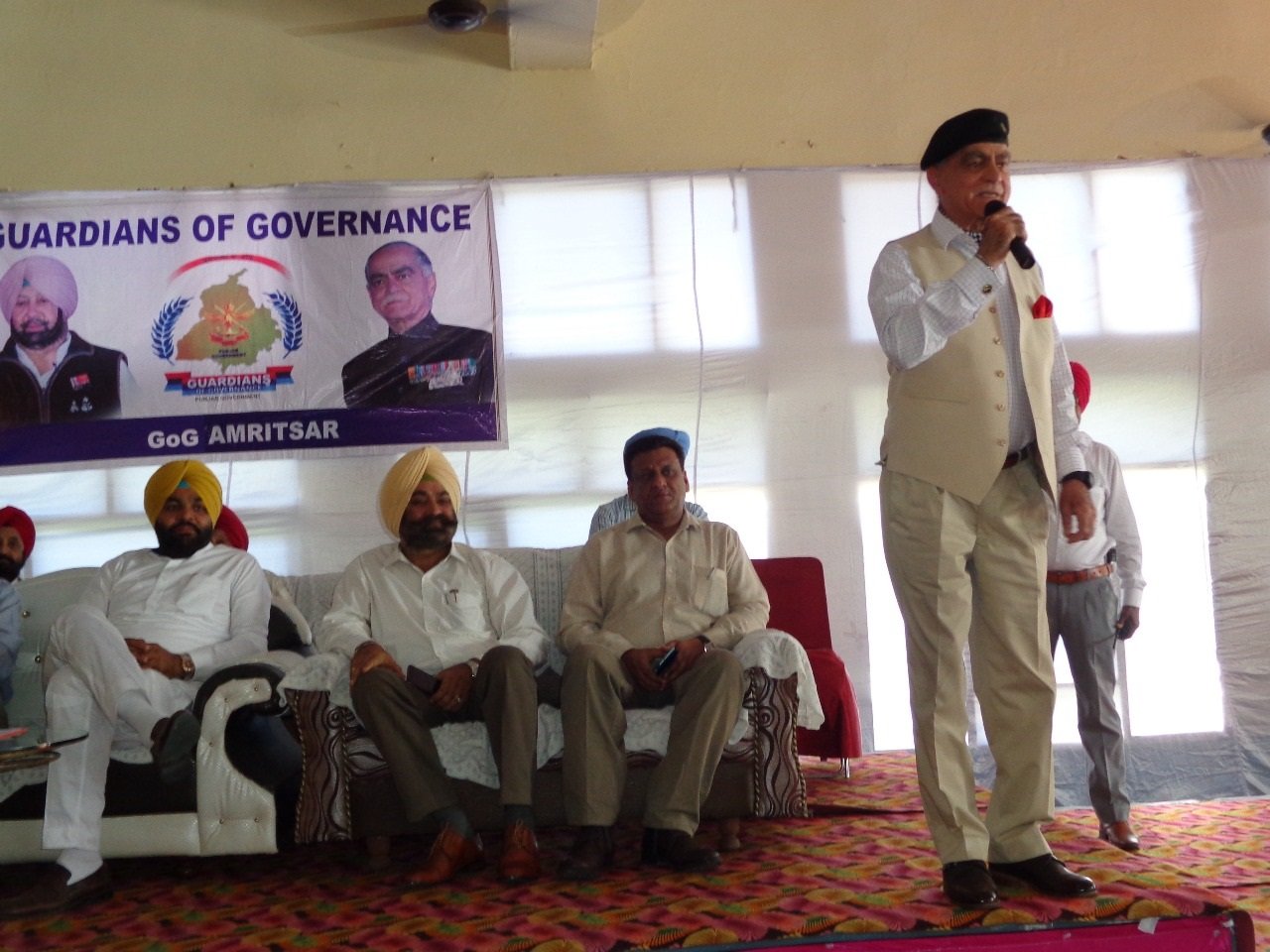
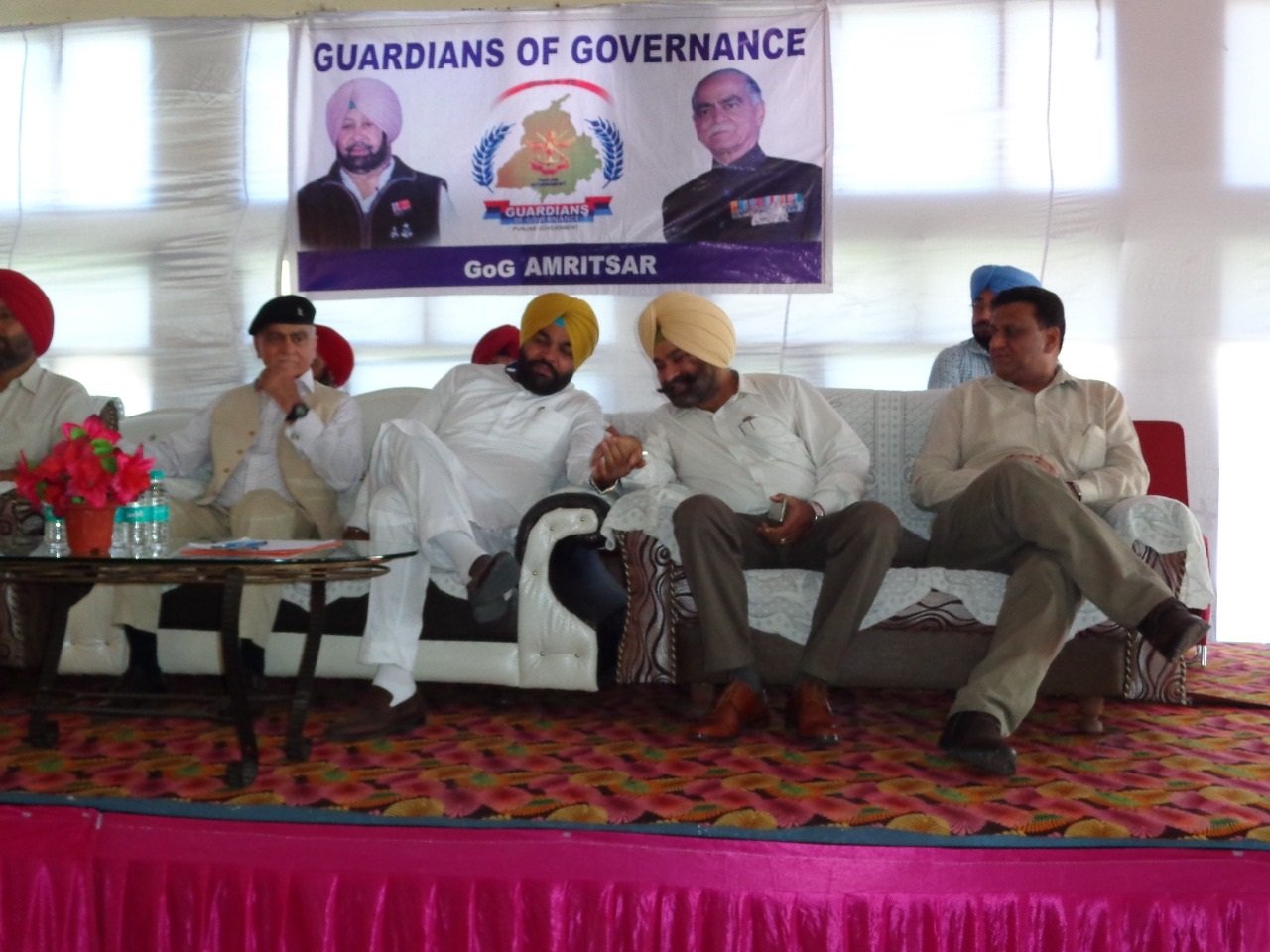 delay.He said the Congress government
delay.He said the Congress government
and dedication.








 delay.He said the Congress government
delay.He said the Congress government
had honoured brave ex-soldiers through this scheme who would implement it with honesty and dedication
Tribune News Service
Chennai, April 13
To tide over the problem of getting spares for Russian-origin military equipment, seven MoUs were on Friday signed between Indian private companies and Russian manufacturers at the DefExpo here.The MoUs were signed at the third India-Russia military industrial conference held on the sidelines of the event.Deliberations during the conference focused on the need for improvement of after-sales support of Russian-origin defence platforms.The Indian delegation was led by Secretary (Defence Production) Dr Ajay Kumar while Deputy Minister of Industry and Trade of Russian Federation Oleg Ryazantcev led the other side. The Russian delegation comprised senior representatives of the government and representatives of leading defence industries.Around 75 Indian defence sector manufacturing companies and 28 original equipment manufacturers from Russian industry participated in the conference.Two rounds of India-Russia military industrial conferences have been held in past: in March and August last year in New Delhi and Moscow.
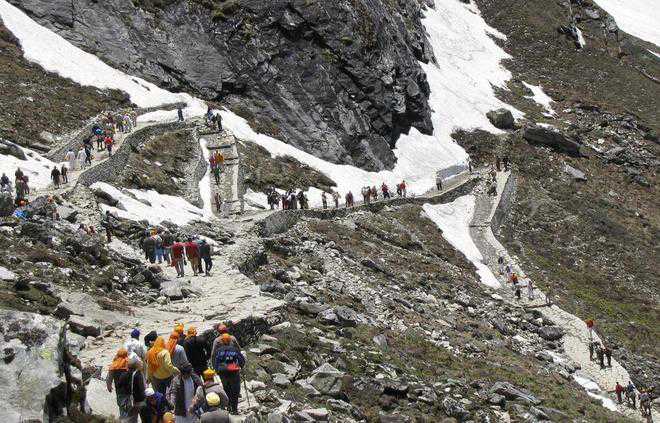
Jotirmay Thapliyal
Tribune News Service
Dehradun, April 4
Pilgrims planning to visit Hemkund Sahib in Chamoli district this year will have to shell out extra money as the fares of hiring mules, porters and palanquins have been increased. The Sikh temple will open on May 25.Pilgrims can take their vehicles till Pulna only and further they have to cover a 16-km stretch on foot. Most of the pilgrims, especially elderly, prefer to hire mules and porters as the route is arduous.The Chamoli district panchayat, which manages all these facilities, has decided to increase the fares from this year. A porter will now charge Rs 1,900 for carrying a pilgrim with weight up to 50 kg from Pulna to Hemkund Sahib for to and fro journey. Earlier, the fare was Rs 1,570. Those weighing above 50 kg will be charged Rs 2,610, while earlier it used to be Rs 2,155.Similarly, the owners of mules and horses will charge Rs 3,435 for carrying weight up to 60 kg. Earlier, the charges were Rs 2,860. For hiring palanquin, the fare has been increased from Rs 13,205 to Rs 15,850.MS Rana, a senior government official in Chamoli, said the fares had been increased after a gap of three years.
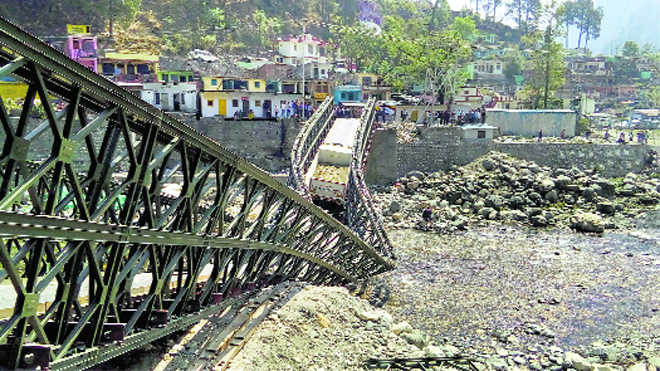
Jyotirmay Thapliyal
Tribune News Service
Dehradun, April 1
The sole bailey bridge over the Assi Ganga river connecting Uttarkashi district with the Sino-Indian border collapsed on Sunday morning. No one was reportedly hurt in the incident. The 60-metre long bridge at Gangori on the Gangotri National Highway in Uttarkashi district has collapsed for the second time in over three months.The 190 feet bridge collapsed last on December 14, 2017. The bridge was repaired and opened to traffic on January 10. Located at a distance of 6 km from Uttarkashi town, the bridge is a vital link for transporting locals to and from 80 villages of Bhatwari region and tourists visiting the Gangotri temple.The bridge has a load bearing capacity of 19 tonne and is important in terms of ferrying ration and other reinforcements for the ITBP personnel guarding the Sino-Indian border in this part of the country.Efforts are now under way for immediate alternative arrangements to ensure smooth flow of traffic.The need for a permanent bridge replacing the current arrangement has been felt since long. The original bridge was washed away in the 2013 floods. Meanwhile, the district authorities are probing the reasons for the bridge collapse. Sources attribute the collapse to a large number of overloaded trucks crossing the bridge daily. With Char Dham Yatra round the corner, it has become imperative for the authorities concerned to repair the bridge as soon as possible.
New Delhi, March 29
Any “bonhomie” between the judiciary and the government would sound the “death knell” for democracy, senior-most Supreme Court judge Justice J Chelameswar has told the Chief Justice of India (CJI) and urged him to convene a full court to deal with the alleged executive interference in judiciary.In an unprecedent letter to the CJI, copies of which were also sent to 22 other apex court judges on March 21, Justice Chelameswar has questioned the probe initiated by Karnataka High Court Chief Justice Dinesh Maheshwari against District and Sessions Judge Krishna Bhat at the request of the Union Ministry of Law and Justice, despite his name being recommended for elevation twice by the Collegium.Efforts to get a response on the letter from the office of CJI Dipak Misra did not fructify, while several legal luminaries, when contacted, chose not to comment on the matter.Justice Chelameswar, who had held the unprecedented January 12 press conference along with three other senior judges raising issues, including the allocation of cases by the CJI, expressed concern over the executive directly asking the Karnataka Chief Justice to conduct a probe against Bhat, saying this was done even after his name was recommended twice for judgeship by the apex court collegium.In 2016, then Chief Justice of India T S Thakur had asked then High Court chief justice S K Mukherjee to hold an inquiry against Bhat on certain allegations levelled by a subordinate woman judicial officer. After the probe had given him a clean chit, Bhat’s name was recommended by the collegium for elevation.”Someone from Bangalore has already beaten us in the race to the bottom. The Chief Justice of Karnataka High Court is more than willing to do the Executive bidding, behind our back,” Justice Chelameswar wrote in his six-page letter.Raising the issue of judicial independence, he said, “We, the judges of the Supreme Court of India, are being accused of ceding our independence and our institutional integrity to the Executive’s incremental encroachment.”The executive is always impatient, and brooks no disobedience even of the judiciary if it can. Attempts were always made to treat the Chief Justices as the Departmental Heads in the Secretariat. So much for our ‘independence and pre-eminence’ as a distinct State organ.” The letter said: “Let us also not forget that the bonhomie between the judiciary and the government in any State sounds the death knell to democracy. We both are mutual watchdogs, so to say, no mutual admirers, much less constitutional cohorts”.Justice Chelameswar referred to the “unhappy experience” where the Government sat tight over the files even after the Collegium recommends names for appointment in the higher judiciary.”For some time, our unhappy experience has been that the government’s accepting our recommendations is an exception and sitting on them is the norm. ‘Inconvenient’ but able judges or judges to be are being bypassed through this route,” he alleged.The apex court judge, who demits office on June 22, took serious note of the communication between the Karnataka High Court chief justice and the executive saying, “the role of the High Court ceases with its recommendation”.He said that any correspondence, clarificatory or otherwise, has to be between the executive and the Supreme Court.The top court judge also said the day may not be “far off” when the executive would directly communicate with the High Court about pending cases and ask what orders are to be passed.While referring to Bhat’s case, he said, “To my mind, I could recollect no instance from the past, of the executive bypassing the Supreme Court, more particularly while its recommendations are pending, to look into the allegations already falsified and conclusively rejected by us.”Asking the High Court to re-evaluate our recommendation in this matter has to be deemed improper and contumacious.” Beseeching the CJI to take up the issue of executive interference in judiciary by convening a full court on the judicial side, he said this was necessary in order to ensure that the institution (Supreme Court) remained relevant under the scheme of the Constitution.He also referred to a past instance when the apex court had taken serious note of a direct communication of the then Law Minister to the High Courts on the issue of judges’ transfer which had finally led to the judgement in first judges case in 1981. Later, the Collegium had assumed power with regard to judges’ appointment in the higher judiciary. – PTI



























































